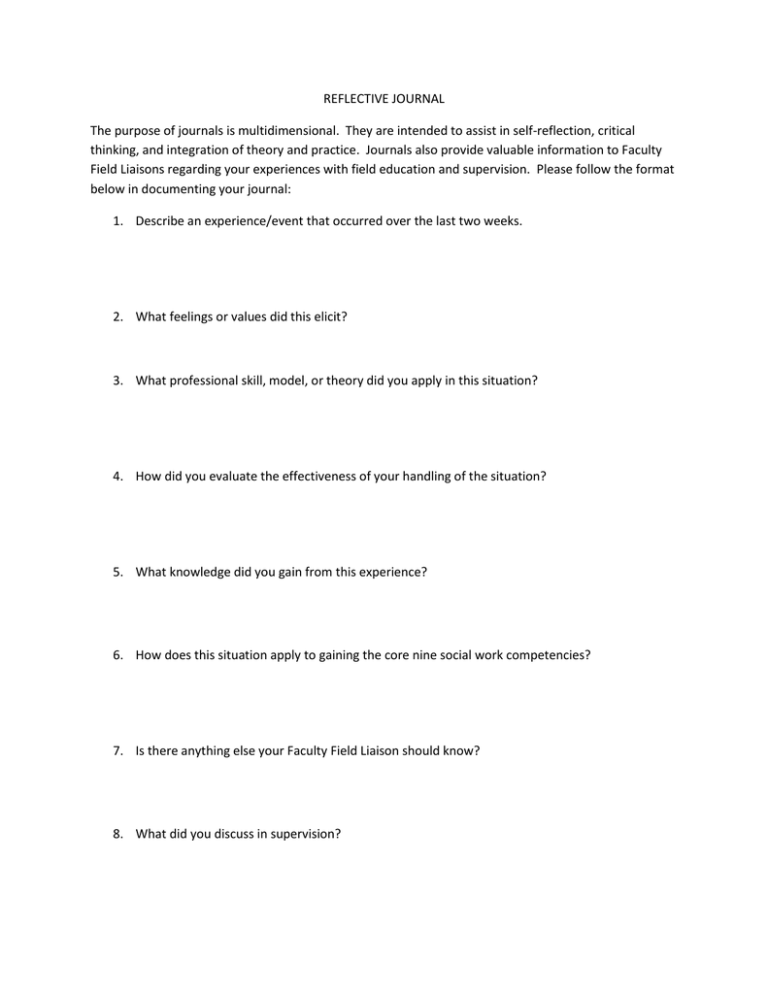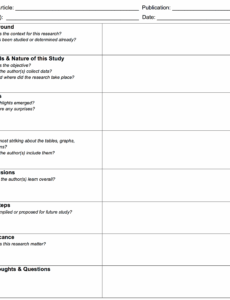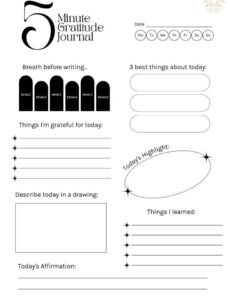Working in social services often means navigating complex situations, making tough decisions, and encountering a wide range of human experiences. The emotional and ethical demands can be immense, requiring not just professional skill but also profound self-awareness. It’s a field where continuous learning isn’t just a suggestion; it’s a necessity for ethical practice and personal well-being.
This is where the power of reflective practice comes into play. Taking the time to thoughtfully review your experiences, responses, and the outcomes of your work can be transformative. It’s about more than just remembering what happened; it’s about deeply understanding the ‘why’ and ‘how,’ paving the way for improved future interactions and sustained professional growth. A structured approach, often facilitated by a dedicated reflective journal template for social work, can make this process incredibly effective and sustainable.
Why Reflective Practice is Essential for Social Work Professionals
Reflective practice is a cornerstone of professional development in social work, offering a vital space for self-examination and growth. It encourages practitioners to pause, consider their actions, and explore the underlying thoughts, feelings, and values that influenced their decisions. This deliberate introspection is crucial for developing self-awareness, which is fundamental to understanding how one’s own biases, experiences, and emotions might impact client interactions and professional judgments. Without this self-awareness, even the most well-intentioned interventions can fall short of their potential.
Beyond personal growth, engaging in regular reflection significantly contributes to preventing professional burnout, a common challenge in demanding fields like social work. By processing difficult cases, celebrating successes, and identifying areas for improvement, social workers can better manage the emotional toll of their work. It provides an outlet for the complex emotions that arise and helps in developing coping strategies. This proactive approach to emotional well-being not only sustains the individual practitioner but also ensures they can continue to provide high-quality, compassionate care to their clients.
Furthermore, reflective practice is deeply intertwined with ethical considerations and continuous learning. Social work is governed by a robust set of ethical principles, and reflection serves as a mechanism to ensure that practice aligns with these standards. It prompts practitioners to critically assess ethical dilemmas, explore alternative solutions, and understand the implications of their choices on clients and communities. This ongoing cycle of learning from experience ensures that social workers remain adaptive, responsive, and innovative in an ever-changing professional landscape.

Ultimately, incorporating structured reflection into daily practice transforms challenges into opportunities for learning. It moves beyond anecdotal recall to a more systematic analysis of professional encounters. A well-designed reflective journal template for social work acts as a guide in this process, ensuring that key aspects of an experience are considered, from initial reactions to theoretical implications and future actions.
Key Benefits of Structured Reflection
- Enhances self-awareness and emotional intelligence.
- Fosters critical thinking and problem-solving skills.
- Improves client outcomes through informed practice adjustments.
- Reduces the risk of burnout by processing difficult experiences.
- Supports ethical decision-making and adherence to professional standards.
- Promotes continuous professional development and lifelong learning.
Crafting Your Own Reflective Journal Template for Social Work
Creating or utilizing a structured template can significantly enhance the effectiveness of your reflective practice. Instead of simply journaling freeform, a template guides you through a series of prompts that encourage a comprehensive analysis of your experiences. This structured approach ensures that you consistently explore various dimensions of a situation, moving beyond surface-level descriptions to deeper insights about your actions, their impact, and potential areas for growth. It makes the reflective process more intentional and productive, ensuring no critical aspect is overlooked.
An effective template will typically begin with contextual information. This includes the date of the reflection, a brief description of the specific case or client interaction you are reflecting upon, and the main situation or challenge encountered. Setting the scene clearly helps to ground your reflection and provides a reference point for future review. Think of it as creating a mini case study for your personal learning log, allowing you to easily track your professional journey and identify patterns over time.
The core of the template should focus on your personal experience and analysis. This section invites you to delve into your immediate feelings and reactions during the event. What emotions did you experience? How did your body react? Following this, you’ll be prompted to analyze the situation using relevant theories, models, or professional knowledge. What theoretical frameworks can help explain what happened? What ethical considerations were at play? This analytical step moves reflection beyond mere description to a more academic and evidence-based understanding of practice.
Finally, a crucial part of any robust reflective journal template involves identifying key learnings and planning for future action. Based on your analysis, what insights have you gained? What would you do differently if faced with a similar situation? What specific steps will you take to incorporate this learning into your future practice? This forward-looking element transforms reflection from a passive activity into an active strategy for continuous improvement and professional excellence, ensuring that each experience contributes to your ongoing development.
Embracing reflective practice through a structured journal is more than just a task; it’s an investment in your professional self and the quality of care you provide. By consistently engaging with your experiences in a thoughtful and analytical way, you not only refine your skills and deepen your understanding of social work but also cultivate resilience and a profound sense of purpose. This commitment to ongoing self-assessment is what distinguishes truly impactful social workers, enabling them to navigate the complexities of their role with greater wisdom and efficacy.
The journey of professional growth is continuous, and a well-utilized reflective journal becomes an indispensable companion on that path. It’s a space where challenges become lessons, and every interaction offers a chance to refine your approach, ensuring you remain at the forefront of compassionate and competent social work practice.





